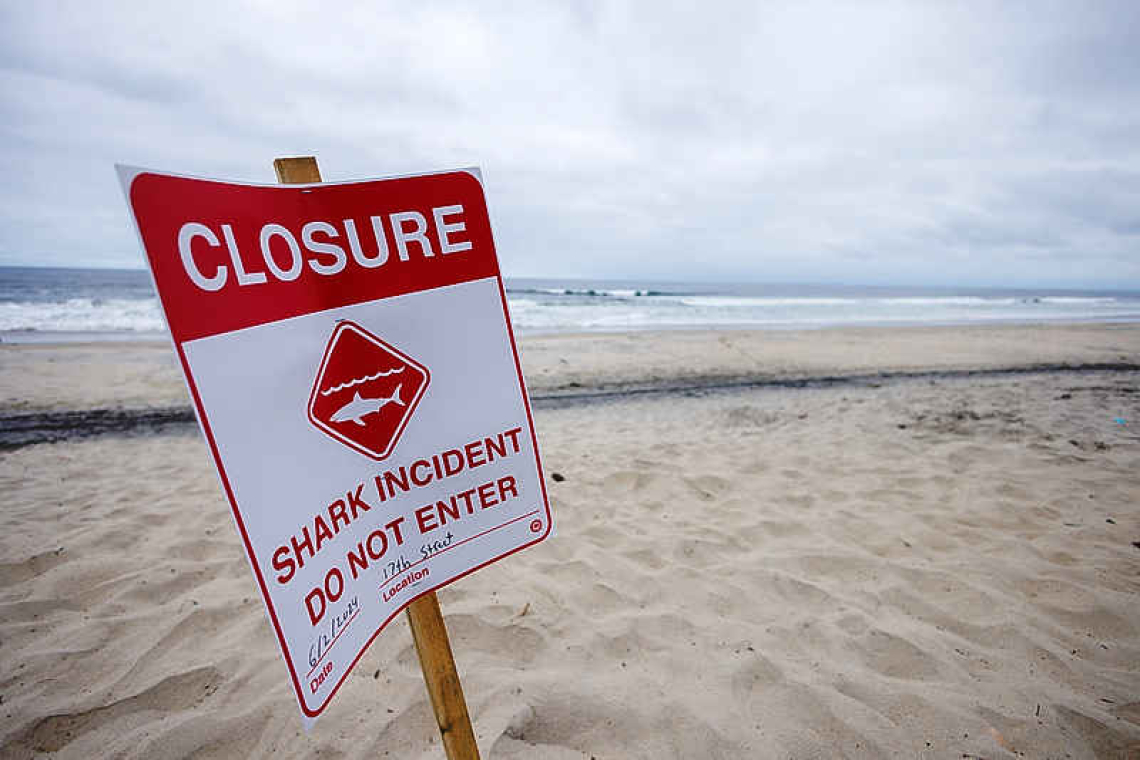SAN DIEGO--Experts are investigating a shark bite of a swimmer near San Diego, seeking to determine the species and uncover any clues to explain the rare event, a leading shark researcher said on Monday.
A 46-year-old man who was swimming with about a dozen others in Del Mar was bitten on the torso, left arm and hand about 100 yards (meters) from shore on Sunday, a Del Mar lifeguard spokesperson said, according to the San Diego Union-Tribune. The beach remained closed on Monday, posted with a "shark incident" notice.
Sharks including great whites come close to swimmers, surfers and paddlers virtually every day in the waters off Del Mar and the Torrey Pines beach of San Diego, experts say, but there have been only 20 unprovoked bites recorded in San Diego County in the past 98 years, according to the International Shark Attack File database. In May, a shark knocked a surfer off their board about 40 miles (64 km) up the coast in San Clemente, the city said.
Chris Lowe, a marine biology professor and director of the Shark Lab at California State University, Long Beach, led a team to Del Mar on Sunday to take water samples in hopes that cells shed by the animal could be recovered and tested for DNA to reveal the species.
The Shark Lab team also hopes to gain access to medical records and the swimmer's wetsuit to measure the bite marks, which also could reveal the shark's size and approximate age, Lowe said.
"There are a lot of sharks there and a lot of people around each other every single day. So we're not really sure why this particular event occurred," said Lowe, whose team has tagged 225 juvenile white sharks and monitors their movements.
The San Diego waters, similar to those in the Santa Cruz-Monterey area, are considered aggregation sites where sharks frequently feed. Shark bites are even less likely in those areas, Lowe said, probably because those sharks are accustomed to humans and less likely to confuse them for more typical prey such as sea lions.
"It could have been a new shark to the area that was coming in and wasn't used to people and made a mistake," Lowe said.







